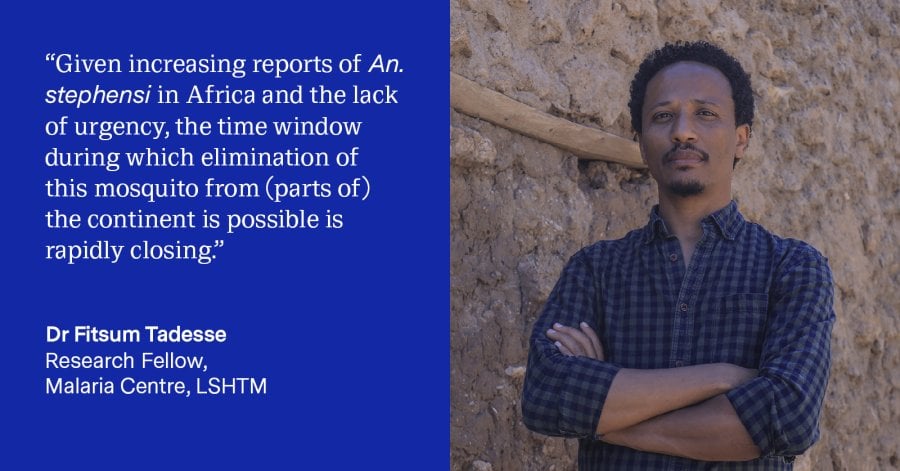
Anopheles stephensi, distinct from traditional African rural malaria vectors, has established itself in urban environments, particularly in the Horn of Africa, where malaria has resurged. In a landmark study conducted in Dire Dawa, Ethiopia, researchers investigated the role of An. stephensi in malaria transmission between April and July 2022. Their findings provided compelling evidence of An. stephensi’s pivotal role in driving urban malaria outbreaks in this setting.
The study revealed a 12-fold increase in malaria cases (predominantly Plasmodium falciparum) in Dire Dawa during the dry months of 2022 compared to 2019, in a setting sympatric for P. vivax and P. falciparum.
The research demonstrated the spatial clustering of P. falciparum infections around malaria patients, closely associated with the presence of An. stephensi (adult and larvae) near households. The detection of Plasmodium sporozoites in these mosquitoes confirmed their role in transmission. The An. stephensi mosquito were detected in manmade water storage containers and was also dominant in natural habitats.
In addition, parasites with molecular signatures of artemisinin resistance were identified. Of particular concern was the high prevalence of the R622I mutation in the kelch13 gene, associated with partial drug resistance in a recent study in Mihreteab et al.
Moreover, parasites with deletions in the pfhrp2 and pfhrp3 genes were detected, potentially compromising the utility of the widely used Histidine Rich Protein 2/3 (HRP) based rapid diagnostic tests (RDTs).
The study emphasised the necessity for urgent action to combat this rapidly spreading mosquito's threat, as well as the growing issues of drug resistance and diagnostic challenges.
The presence of An. stephensi in African urban environments, its ability to exploit manmade containers, resistance to insecticides, and capacity to transmit both P. falciparum and P. vivax make it a formidable challenge for malaria control programs.
Dr Fitsum Tadesse, a malariologist at LSHTM and the senior author of this paper spoke on the significance of this study, saying “Given increasing reports of An. stephensi in Africa and the lack of urgency, the time window during which elimination of this mosquito from (parts of) the continent is possible is rapidly closing."
The World Health Organization (WHO) has already recognized the seriousness of An. stephensi's expansion across Africa and has issued a strategy to mitigate its spread, highlighting the need for immediate action to curb the threat posed by this fast-spreading mosquito. The detection of three emerging biological threats of malaria in a fine geographical space is concerning and the spread of the vector across sub-Saharan Africa could have devastating impacts on malaria control.
LSHTM's short courses provide opportunities to study specialised topics across a broad range of public and global health fields. From AMR to vaccines, travel medicine to clinical trials, and modelling to malaria, refresh your skills and join one of our short courses today.
